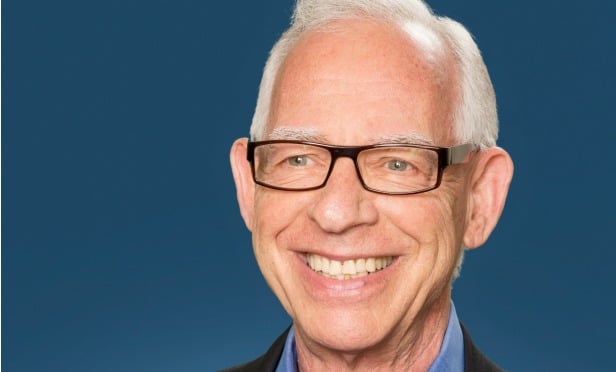
LOS ANGELES—The most common misconception about public-private partnerships is that the entitlement and regulatory process is expedited or even exempt for developers, according to Ron Silverman and Andrew Fogg, partners at Cox, Castle and Nicholson. Developers in public partnerships, like the ones that Metro is forging to boost transit-oriented development, are held to the same entitlement and regulatory standards as any other project, and may even see a lengthier process because of the separate guidelines and standards of the government agency.
“Just because there is a public agency involved does not mean that the developer can build whatever they want,” Fogg tells GlobeSt.com. “There is still a regulatory agency that has the jurisdictional authority over the improvements. The public agency that has the land understands the zoning, but a lot of times what they have in mind might contemplate intensification of zoning and they are going to expect that the developer will lead that process through the city. Then, the ground lease or disposition will come back through the agency following the city's approval. The granting of a ground lease are discretionary acts and trigger compliance with CEQA, and so there is a really interesting dynamic where we are navigating two masters. You have the agency's desires of what they want to see and you will have the city's desires of what they think is appropriate given the zoning and infrastructure. There could be a real tension there of trying to satisfy both sides.”
The process may take even longer than a private development because of extra standards enforced by the agency. “In many respects there is an extra layer because of the involvement of the agencies,” says Fogg, while Silverman adds, “The agency may have its own set of standards. Developers may think that they have satisfied all of the requirements, but have failed to look at the agency's standards.”

This is a common mistake that developers first entering or bidding on these public-partner opportunities make, and a good reason to seek consultation through the process to clarify expectations. “Every deal is different, but this is a constant theme through many projects. You are always trying to align each party's interest,” says Fogg, adding, “I see this as a failure of consultancy. It is about an alignment of interest.”
Setting expectations in these partnerships is especially difficult for developers outside of California, which don't understand the stringent entitlement process in California. “If you have a developer coming from anywhere other than California, they feel like they have arrived in Alice in Wonderland when they hear what they are going to have to do to get projects entitled,” adds Silverman.
Fogg and Silverman say that public private partnerships are best for seasoned developers that frequently build complex projects and understand the project.
Steady gains in the US economy have resulted in net positives for the multifamily sector—will this wave continue for the foreseeable future? What's driving development and capital flows? Join us at RealShare Apartments on October 19 & 20 for impactful information from the leaders in the National multifamily space. Learn more.

LOS ANGELES—The most common misconception about public-private partnerships is that the entitlement and regulatory process is expedited or even exempt for developers, according to Ron Silverman and Andrew Fogg, partners at
“Just because there is a public agency involved does not mean that the developer can build whatever they want,” Fogg tells GlobeSt.com. “There is still a regulatory agency that has the jurisdictional authority over the improvements. The public agency that has the land understands the zoning, but a lot of times what they have in mind might contemplate intensification of zoning and they are going to expect that the developer will lead that process through the city. Then, the ground lease or disposition will come back through the agency following the city's approval. The granting of a ground lease are discretionary acts and trigger compliance with CEQA, and so there is a really interesting dynamic where we are navigating two masters. You have the agency's desires of what they want to see and you will have the city's desires of what they think is appropriate given the zoning and infrastructure. There could be a real tension there of trying to satisfy both sides.”
The process may take even longer than a private development because of extra standards enforced by the agency. “In many respects there is an extra layer because of the involvement of the agencies,” says Fogg, while Silverman adds, “The agency may have its own set of standards. Developers may think that they have satisfied all of the requirements, but have failed to look at the agency's standards.”

This is a common mistake that developers first entering or bidding on these public-partner opportunities make, and a good reason to seek consultation through the process to clarify expectations. “Every deal is different, but this is a constant theme through many projects. You are always trying to align each party's interest,” says Fogg, adding, “I see this as a failure of consultancy. It is about an alignment of interest.”
Setting expectations in these partnerships is especially difficult for developers outside of California, which don't understand the stringent entitlement process in California. “If you have a developer coming from anywhere other than California, they feel like they have arrived in Alice in Wonderland when they hear what they are going to have to do to get projects entitled,” adds Silverman.
Fogg and Silverman say that public private partnerships are best for seasoned developers that frequently build complex projects and understand the project.
Steady gains in the US economy have resulted in net positives for the multifamily sector—will this wave continue for the foreseeable future? What's driving development and capital flows? Join us at RealShare Apartments on October 19 & 20 for impactful information from the leaders in the National multifamily space. Learn more.
© Touchpoint Markets, All Rights Reserved. Request academic re-use from www.copyright.com. All other uses, submit a request to [email protected]. For more inforrmation visit Asset & Logo Licensing.







